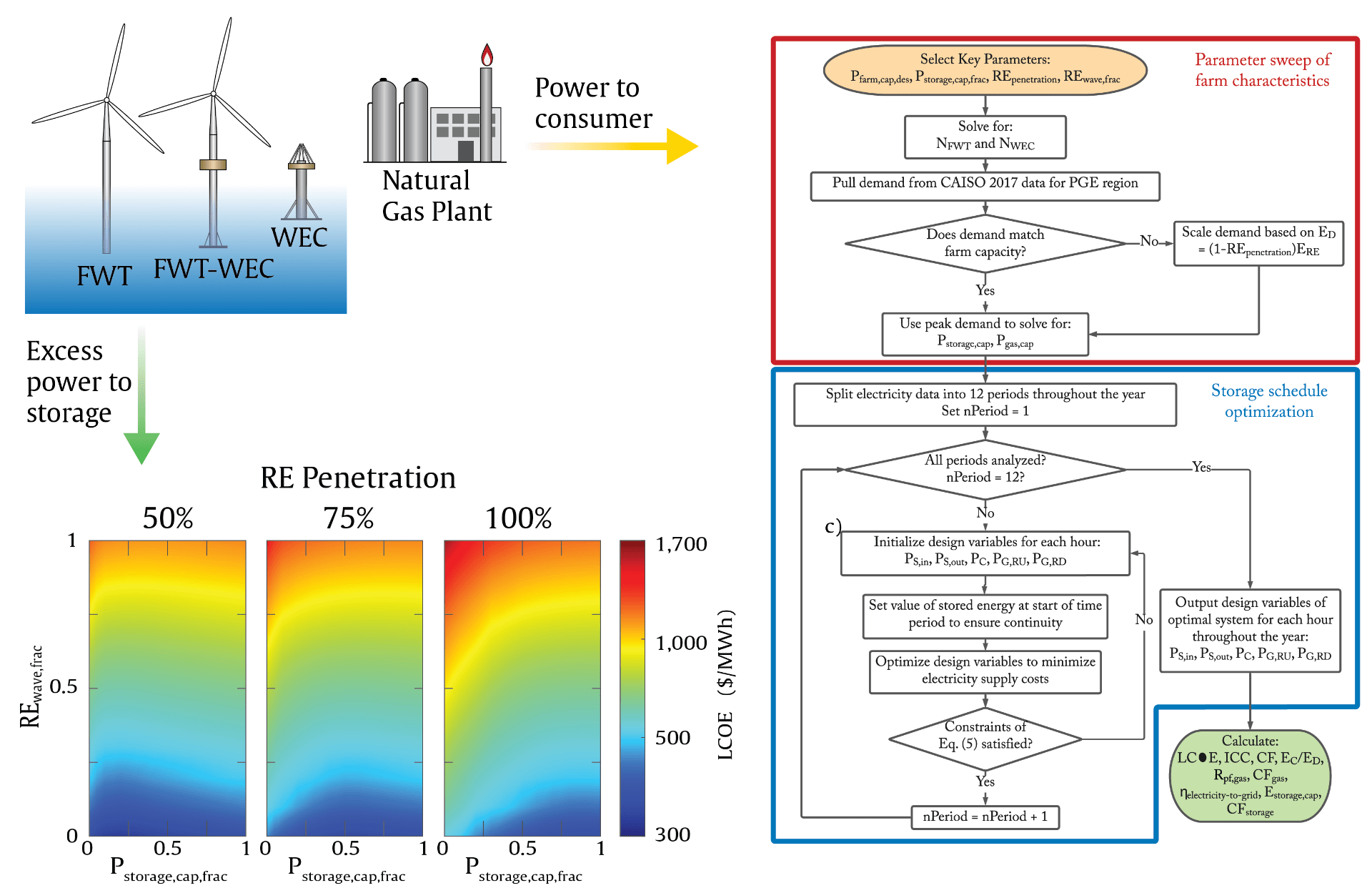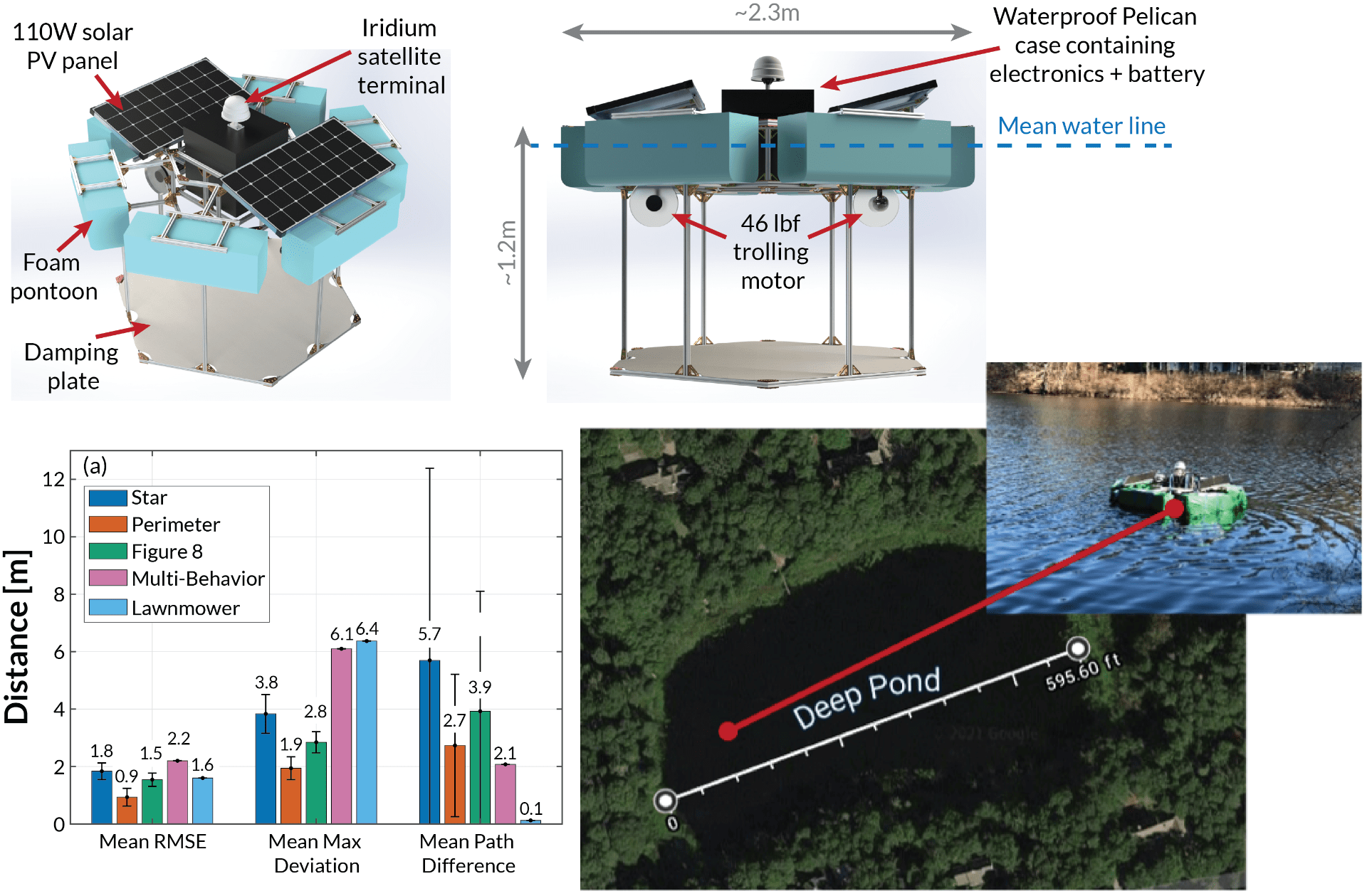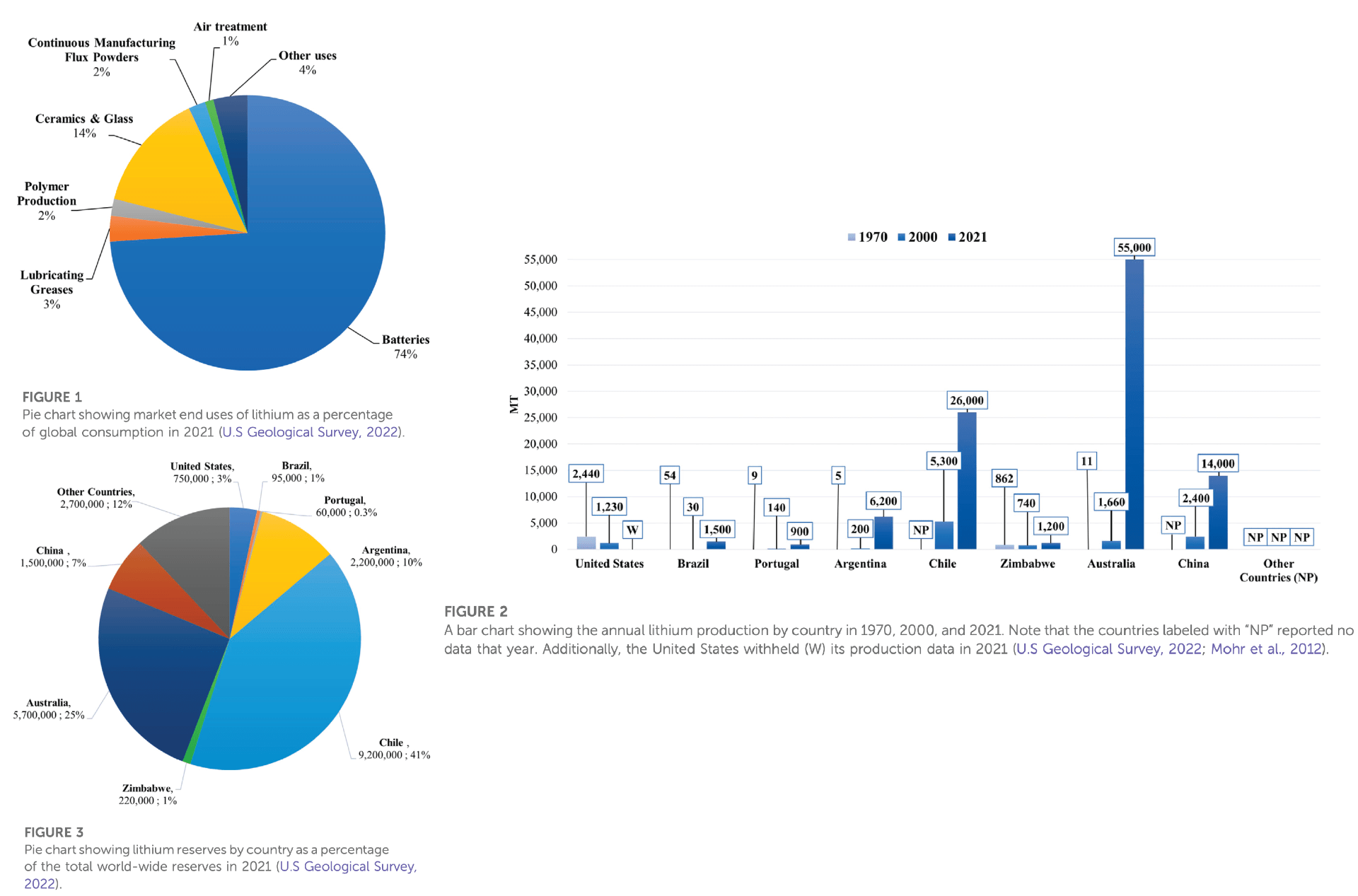The Symbiotic Engineering and Analysis Lab develops interdisciplinary symbiotic solutions to advance sustainable offshore technologies vital to the growth of the Blue Economy* and the mitigation of climate change. The SEA Lab is led by Professor Maha Haji in the Sibley School of Mechanical and Aerospace Engineering at Cornell University.
The Symbiotic Engineering and Analysis Lab develops interdisciplinary symbiotic solutions to advance sustainable offshore technologies vital to the growth of the Blue Economy* and the mitigation of climate change. The SEA Lab is led by Professor Maha Haji in the Sibley School of Mechanical and Aerospace Engineering at Cornell University.
Research
Systems Engineering
Integrating systems to better provide mutually beneficial relationships with the oceans.
Mineral Extraction
Sustainably harvesting minerals from seawater, including uranium, cobalt, and lithium.
Offshore Energy
Harnessing and storing the energy at sea to meet the energy needs of tomorrow.
Aquaculture
Reliably and cost-effectively expanding aquaculture farms further offshore.
Research
Systems Engineering
Integrating systems to better provide mutually beneficial relationships with the oceans.
Mineral Extraction
Sustainably harvesting minerals from seawater, including uranium, cobalt, and lithium.
Offshore Energy
Harnessing and storing the energy at sea to meet the energy needs of tomorrow.
Aquaculture
Reliably and cost-effectively expanding aquaculture farms further offshore.
News
SEA Lab Alum Awarded NSF GRFP
SEA Lab alum Aisha Brundan was recently awarded NSF’s highly competitive Graduate Research Fellowships Program, providing three years of funding towards a graduate degree. Brundan plans to investigate the power take-off (powertrain) dynamics for wave energy converters. We’re so proud of our recent alum, who is currently working at the National Renewable Energy Lab.
April 8th, 2024
SEA Lab featured in Sea Water Mining Video
The SEA Lab was featured on a recent Grist sea water mining video, detailing the availability of critical minerals in the ocean and how we can extract them. Prof. Haji’s work involves hanging mineral filters off decommissioned oil rigs, recycling these offshore structures for sustainability uses. Check out the full newsroom-wide series on mining here.
March 27th, 2024
Congrats SEA Lab Grads!
Congratulations to SEA labbers who recently graduated from their programs this December: M.Eng students Loren Weiner and Ruiyang Jiang and undergraduate student Aisha Brundan. We’re excited to see where there future takes them after Cornell. Find their social media links in the Alumni section of our Team Page.
January 20th, 2024
Prototyping Team Awarded Atkinson FAST Grant
The wave energy converter prototyping team was awarded funding from the Cornell Atkinson Center for Sustainability through their 2030 Project FAST Grant. This grant is focused on supporting ambitious, unique climate action urgently with the goal of producing the largest impact in the shortest time-frame. The SEA Lab’s project was featured in the Cornell Chronicle’s report of winning applications.
December 18th, 2024
Two Teams from SEA Lab win DOE Prize
The SEA Lab submitted two entries to the Concept Phase of the Department of Energy’s Power at Sea Prize. This prize looks for innovation wave energy technology for powering Blue Economy applications. One team focused on sequestering carbon dioxide in deep sea bed aquifers using mechanical wave energy. Their project is titled CArbon Sequestration Harnessing Energy from Waves, or CASHEW. The second team focused on a compressed air energy storage system that also leveraged mechanical wave power. This team calls themselves IMTAqua, as their application is for offshore integrated multi-trophic aquaculture. Each team was awarded $10,000 for Phase II, the Develop Phase, where teams can prototype their technology. See the list of Phase I prize winners here.
November 25th, 2024
News
SEA Lab Alum Awarded NSF GRFP
SEA Lab alum Aisha Brundan was recently awarded NSF’s highly competitive Graduate Research Fellowships Program, providing three years of funding towards a graduate degree. Brundan plans to investigate the power take-off (powertrain) dynamics for wave energy converters. We’re so proud of our recent alum, who is currently working at the National Renewable Energy Lab.
April 8th, 2024
SEA Lab featured in Sea Water Mining Video
The SEA Lab was featured on a recent Grist sea water mining video, detailing the availability of critical minerals in the ocean and how we can extract them. Prof. Haji’s work involves hanging mineral filters off decommissioned oil rigs, recycling these offshore structures for sustainability uses. Check out the full newsroom-wide series on mining here.
March 27th, 2024
Congrats SEA Lab Grads!
Congratulations to SEA labbers who recently graduated from their programs this December: M.Eng students Loren Weiner and Ruiyang Jiang and undergraduate student Aisha Brundan. We’re excited to see where there future takes them after Cornell. Find their social media links in the Alumni section of our Team Page.
January 20th, 2024
Prototyping Team Awarded Atkinson FAST Grant
The wave energy converter prototyping team was awarded funding from the Cornell Atkinson Center for Sustainability through their 2030 Project FAST Grant. This grant is focused on supporting ambitious, unique climate action urgently with the goal of producing the largest impact in the shortest time-frame. The SEA Lab’s project was featured in the Cornell Chronicle’s report of winning applications.
December 18th, 2024
Two Teams from SEA Lab win DOE Prize
The SEA Lab submitted two entries to the Concept Phase of the Department of Energy’s Power at Sea Prize. This prize looks for innovation wave energy technology for powering Blue Economy applications. One team focused on sequestering carbon dioxide in deep sea bed aquifers using mechanical wave energy. Their project is titled CArbon Sequestration Harnessing Energy from Waves, or CASHEW. The second team focused on a compressed air energy storage system that also leveraged mechanical wave power. This team calls themselves IMTAqua, as their application is for offshore integrated multi-trophic aquaculture. Each team was awarded $10,000 for Phase II, the Develop Phase, where teams can prototype their technology. See the list of Phase I prize winners here.
November 25th, 2024
Selected Publications
Integrated Pumped Hydro Reverse Osmosis System optimization featuring surrogate model development in Reverse Osmosis modeling
M. W. Haefner and M. N. Haji
Applied Energy, 352, 121812, 2023
The power balancing benefits of wave energy converters in offshore wind-wave farms with energy storage
J. M. Kluger, M. N. Haji, and A. H. Slocum
Applied Energy, 331, 120389, 2023.
Autonomous control of a prototype solar-powered offshore autonomous underwater vehicle servicing platform via a low-cost embedded architecture
E. Rolland, M. N. Haji, and O. L. de Weck
Journal of Field Robotics, 1-20, 2023.
A review of technologies for direct lithium extraction from low Li+ concentration aqueous solutions
O. Murphy and M. N. Haji
Frontiers in Chemical Engineering, 4, 2022.
Selected Publications
Integrated Pumped Hydro Reverse Osmosis System optimization featuring surrogate model development in Reverse Osmosis modeling
M. W. Haefner and M. N. Haji
Applied Energy, 352, 121812, 2023
The power balancing benefits of wave energy converters in offshore wind-wave farms with energy storage
J. M. Kluger, M. N. Haji, and A. H. Slocum
Applied Energy, 331, 120389, 2023.
Autonomous control of a prototype solar-powered offshore autonomous underwater vehicle servicing platform via a low-cost embedded architecture
E. Rolland, M. N. Haji, and O. L. de Weck
Journal of Field Robotics, 1-20, 2023.
A review of technologies for direct lithium extraction from low Li+ concentration aqueous solutions
O. Murphy and M. N. Haji
Frontiers in Chemical Engineering, 4, 2022.
*The Blue Economy is defined by the United Nations as an ocean economy that aims at “the improvement of human well-being and social equity, while significantly reducing environmental risks and ecological scarcities” (UN, 2014, p.2)
*The Blue Economy is defined by the United Nations as an ocean economy that aims at “the improvement of human well-being and social equity, while significantly reducing environmental risks and ecological scarcities” (UN, 2014, p.2)



